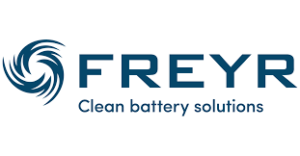Canada’s The Metals Company (NASDAQ: TMC) plans to be ready to apply for a licence to start mining the seabed before the end of this year, with production expected to start at the end of the first quarter of 2026.
TMC, a deep-sea mining pioneer, has long said it would submit its application after the United Nations’ International Seabed Authority (ISA) current meeting, which end on July 26.
Gathered in Kingston, Jamaica, the 36-member ISA council are negotiating the latest draft of the anticipated seabed mining rules.
“We’ve told the market that we would lodge (our application) after the July (ISA) session [and] we see no reason to change that,” chief executive Gerard Barron told Reuters.
“From our perspective, what we’re looking for out of the current session is continual movement towards finalizing the regulations,” Barron told the news agency.
The United Nations’ International Seabed Authority (ISA) is currently meeting in Kingston, Jamaica to negotiate a draft “mining code” that will regulate the activity. The 36-member ISA council has been reviewing the 225-page document produced in February and making adjustments as they proceed, TMC told reporters last week in a market briefing.
The Vancouver-headquartered firm also said in the online update that based on feedback received from ISA and stakeholders in 2023, they are running new environmental tests in the area they plan to mine.
Barron’s comments to Reuters contrast to what the TMC told attendees last week. The company said then it would not rush a submission for a mining licence, as the results of the tests have not come back yet.
These conclusions would be key to finish the Environmental Impact Study (EIS) and Environmental Monitoring and Management Plan (EMMP) TMC is currently working on.
“We will do it once and we will do it right,” company representatives said about applying for a mining permit, adding that TMC may not submit the application now after all.
After submission, the permit request will undergo a review process that is anticipated to last for one year.
TMC has been actively carrying out exploratory mining expeditions to mineral-rich Clarion-Clipperton Zone (CCZ) – a vast area between Hawaii and Mexico, where polymetallic nodules the size of potatoes were discovered more than 120 years ago.
The company will scoop up those nodules in a process they say is less damaging than land-based mining.
A study published this week may throw a fresh wrench into TMC and other company’s plans. Experts found metallic nodules produce “dark oxygen” — oxygen generated without using sunlight, as it is on the Earth’s surface via photosynthesis — and warned that extracting these nodules could negatively affect the seafloor ecosystem.
The paper follows a formal complaint filed this week against TMC by three civil society groups with the US Securities and Exchange Commission (SEC).
Deep Sea Mining Campaign (DSMC), The Ocean Foundation (TOF) and Blue Climate Initiative (BCI) allege the company has significantly mislead investors, government officials and the public through material misrepresentations and omissions.




